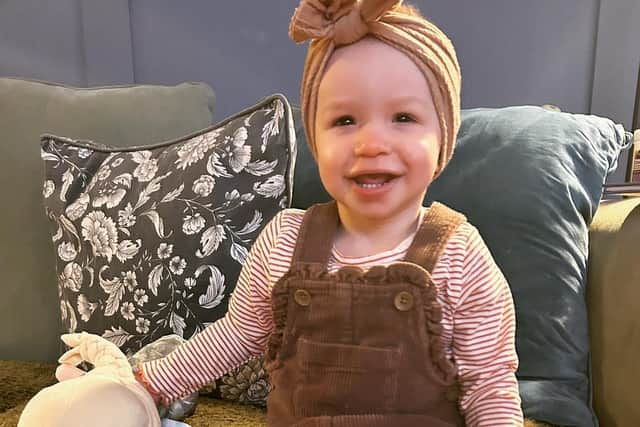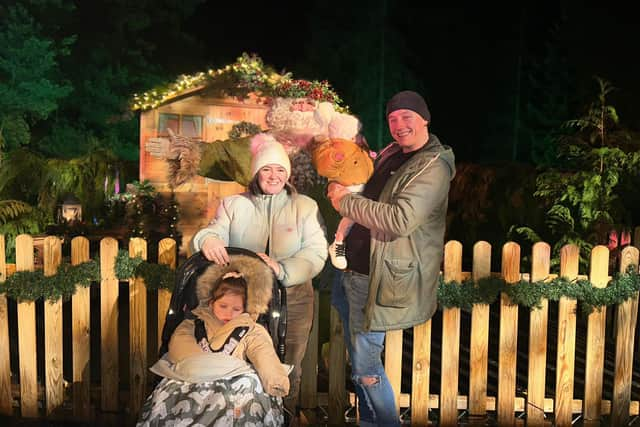"It's just so cruel," admits Shilbottle mum as drug saves Teddi Shaw, but it's too late for her sister
and live on Freeview channel 276
The 19-month-old has had revolutionary treatment to combat metachromatic leukodystrophy (MLD), a genetic disorder which causes fatal damage to the nervous system and organs.
She had her stem cells removed and the faulty genes replaced in several stages between June and October last year at the Royal Manchester Children's Hospital, the only centre in the UK to offer the treatment.
Advertisement
Hide AdAdvertisement
Hide Ad"She’s like a whirlwind,” said mum, Ally. “You would never know she has it, apart from not having hair because of the chemotherapy which was part of the treatment.”


The therapy, Libmeldy, had a list price of £2.8 million when it was approved last year, but NHS England reached agreement with the firm Orchard Therapeutics to offer it at a discounted price.
It prevents the development of a crucial enzyme that leads to a build-up of fats that then destroy the protective layers around the child’s nerves.
"We won’t really know until she gets older but the hope is that it will last a lifetime,” explained Ally. “We’ve been told there could be issues with walking or delayed development but most of the trials have been successful.”
Advertisement
Hide AdAdvertisement
Hide AdFor Ally and dad Jake, however, the joy of finding a cure is tinged with heartbreak as Teddi’s three-year-old sister, Nala, who also has MLD, can’t be helped because her condition is too advanced.


“We’re extremely proud that Teddi’s the first in the UK to get the treatment but it’s bittersweet because Nala’s lost pretty much everything,” said Ally.
“She has good days and bad days but her condition has deteriorated really quickly so it’s just a case of trying to get her medication right and make her as comfortable as possible. With her being non-verbal it’s not easy to know what’s wrong.
"It’s just so cruel that we find ourselves in a position where one child can be saved and the other can’t. There’s nothing we can do about it but it’s extremely hard to accept.
Advertisement
Hide AdAdvertisement
Hide Ad"You just feel awful that one is going to have a normal long life and Nala is not.”
The most common form of MLD usually develops in babies younger than 30 months and can lead to loss of sight, speech and hearing, as well as difficulty moving, brain impairment, seizures. Life expectancy ranges between just five and eight years.
Ally and Jake had been concerned about Nala’s walking difficulties for many months before an MRI finally brought a diagnosis.
Teddi was then brought in for tests and also found to have the disease.
Advertisement
Hide AdAdvertisement
Hide Ad"That’s what I find hardest to accept,” revealed Ally. “We took Nala to the doctors when she was just six months old because we thought she had a funny foot but this went back and forward for two years. We knew something was wrong and we were ignored.
"It was only when we demanded an MRI that it was found. If only they had found out three months earlier it might have been that they could have done something for Nala.”
Their story features in a BBC documentary, Bittersweet Medicine, which is available on BBC iPlayer.